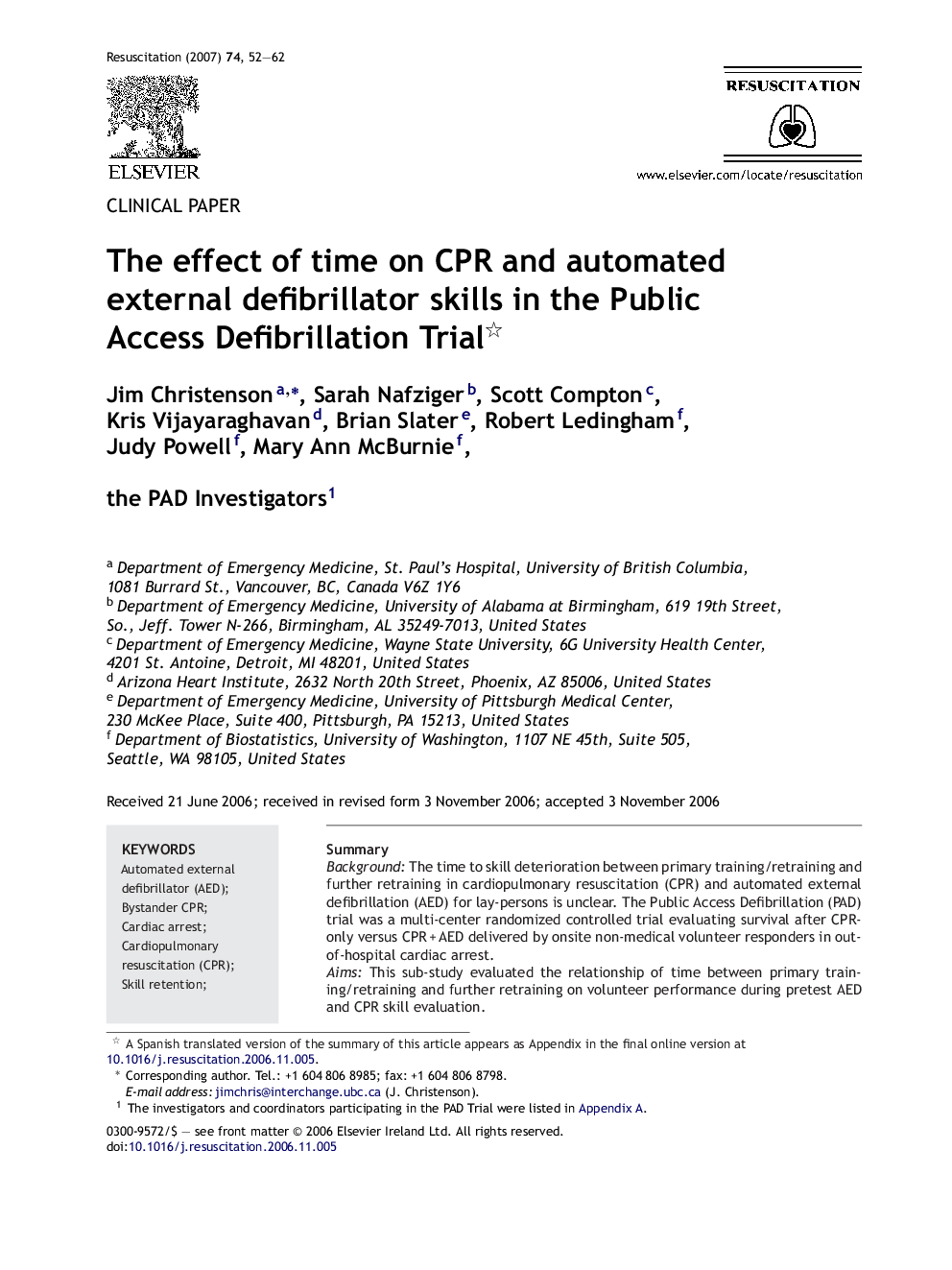| Article ID | Journal | Published Year | Pages | File Type |
|---|---|---|---|---|
| 3010947 | Resuscitation | 2007 | 11 Pages |
SummaryBackgroundThe time to skill deterioration between primary training/retraining and further retraining in cardiopulmonary resuscitation (CPR) and automated external defibrillation (AED) for lay-persons is unclear. The Public Access Defibrillation (PAD) trial was a multi-center randomized controlled trial evaluating survival after CPR-only versus CPR + AED delivered by onsite non-medical volunteer responders in out-of-hospital cardiac arrest.AimsThis sub-study evaluated the relationship of time between primary training/retraining and further retraining on volunteer performance during pretest AED and CPR skill evaluation.MethodsVolunteers at 1260 facilities in 24 North American regions underwent training/retraining according to facility randomization, which included an initial session and a refresher session at approximately 6 months. Before the next retraining, a CPR and AED skill test was completed for 2729 volunteers. Primary outcome for the study was assessment of global competence of CPR or AED performance (adequate versus not adequate) using χ2-test for trends by time interval (3, 6, 9, and 12 months). Confirmatory (GEE) logistic regression analysis, adjusted for site and potential confounders was done.ResultsThe proportion of volunteers judged to be competent did not diminish by interval (3, 6, 9, and 12 months) for either CPR or AED skills. After adjusting for site and potential confounders, longer intervals to further retraining was associated with a slightly lower likelihood of performing adequate CPR but not with AED scores.ConclusionsAfter primary training/retraining, the CPR skills of targeted lay responders deteriorate nominally but 80% remain competent up to 1 year. AED skills do not deteriorate significantly and 90% of volunteers remain competent up to 1 year.
